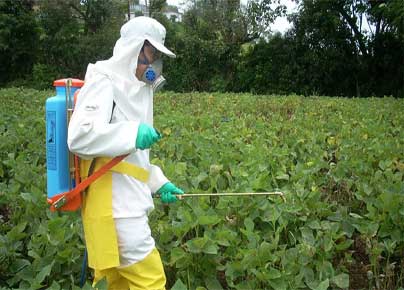Costa Rica Addresses Overuse of Agrochemicals with Legislation
2024-07-05

PLP Congresswoman Kattia Cambronero advocates for a bill to prohibit 17 agrochemicals deemed hazardous by the Organization for Economic Cooperation and Development (OECD) and oversee the overall pesticide use in Costa Rica.
Data from the Food and Agriculture Organization of the United Nations (FAO) indicates that Costa Rica uses the highest number of pesticides per hectare. The Food and Agriculture Data (FAOSTAT) database reveals that Costa Rica consumes 23.44 kilograms of agrochemicals per hectare.
Since 1996, the use of pesticides in Costa Rica has dramatically increased, especially in cultivating three primary crops: bananas, coffee, and pineapples. This trend has led Cambronero to emphasise the urgent need to tackle this issue. She highlights that the 17 pesticides targeted by bill 23.783 for prohibition have already been outlawed in other OECD countries, underlining the situation's urgency.
"We are dealing with a backlog of pesticide legislation that is almost two decades old," she explained. Recently, the UNDP released a report disclosing pesticide contamination in the Sixaola River basin.
Cambronero also noted that Costa Rica requires an effective system for evaluating the use of these products. Therefore, another goal of the legislation is to compile statistics on public health contamination.
Cambronero stresses that the bill not only tackles the overuse of agrochemicals but also encourages research and technical assistance for sustainable agriculture. Additionally, it offers incentives for companies that develop alternatives to chemical pesticides, paving the way towards a healthier, more sustainable future.
The congresswoman remarked that the excessive use of agrochemicals is leading to an increase in illnesses, such as stomach cancer cases in Cartago. This province, renowned for its rich agricultural heritage, is also a region where pesticides are prevalent.
Montserrat Ruiz, a deputy of the National Liberation Party, also views the project as essential for the country and advantageous for the sector. "The project is not merely about prohibition; it incorporates several important mechanisms to assist producers," she stated.
Victor Carvajal, the Minister of Agriculture and Livestock, strongly criticised the UNDP's report, voicing his "concerns" that only environmental aspects were being considered while economic factors were being overlooked.









